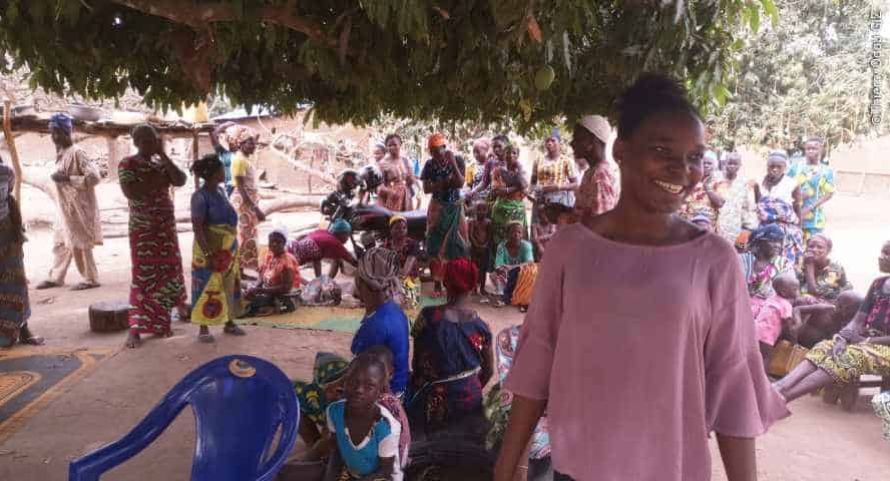Biogas saves women time and makes them more independent

The challenge
More than 700 inhabitants live in the village of Kontoubarou in northern Benin – most of them from agriculture. They raise oxen, sheep and goats, and grow cereals, root vegetables, cotton, peanuts and cashews. One of the biggest problems is their energy needs for cooking, which they meet almost exclusively with firewood.
A family of eight needs an estimated three tons of wood per year for cooking. However, this resource is becoming increasingly scarce due to the ongoing clearing of forest areas, including for the exploitation of arable land. Women and girls, who are traditionally responsible for collecting firewood, have to invest a lot of time for this or buy the wood at a high price. Some girls even leave school in order to be able to collect enough firewood.
The goal
A community-organised biogas plant would offer several advantages. By using the produced biogas for cooking, women and girls would have more time for other productive activities or to go to school. They could also use the biogas to process food and generate their own income. This significantly strengthens the position of women in families and in the village.
A second product of a biogas plant is the high-quality biofertiliser generated during biogas production. Farmers could use this to increase the yield of their harvests. This would also mean that they would no longer be forced to clear more fields in order to achieve sufficient yields. Nature around Kontoubarou could regenerate.
Our partner
The Beninese non-governmental organisation Vert-Monde (= Green World) has known the village of Kontoubarou, its inhabitants and economy for some time and enjoys the trust of the villagers. During a five-month training course on value chains in agriculture at the University of Weihenstephan Triesdorf, the founder of the organisation was able to gain experience with biogas plants. She now wants to apply this knowledge in her home country. The biogas project finally took shape in discussions with the women of the village.
The approach
In addition to the approximately 25m3 biogas plant, a storage room for the biomass and a shed are to be built, which the women can use for the communal processing of the foodstuffs cultivated. Any leftover food will be fed directly into the fermenter. The manure of nomadic cattle herds that roam the village fields is added to this. A three-person management team from the village takes care of collecting the biomass, feeding the fermenter, and distributing the biogas and fertiliser fairly. Farmers who bring the manure from their fields to the biogas plant receive a small payment. Each of the 50 participating women receives a bag to transport the biogas home and receives 1.2m3 of biogas daily – enough for about four hours of cooking. To cover the cost of the administrative team and any maintenance, each woman pays a small amount for the biogas, and the farmers also pay for the fertiliser.
Commune de Tchaourou
Productive use of energy
Women and farmers
06/2022 – 08/2023



